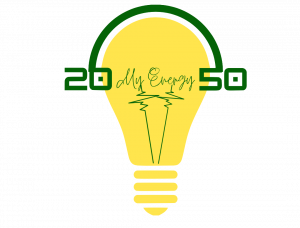What does it take to build the energy transition? Usually, the question is phrased like this, the energy transition is about deploying the right technology. But with this framing, we lose sight of the more important element in the energy transition. It is people that build the communities to support the new technologies, behaviors and educate. These are the people creating the energy transition.
Welcome to the My Energy 2050 podcast where we speak to the people building a clean energy system by 2050. I’m your host Michael LaBelle.
This week we speak with Vjeran Pirsic, a resident, businessman, and local campaigner on the island of Krk in Croatia. As you will hear, Vjeran is not a usual guest for this podcast, but then I don’t know who is. So we can say that Vjeran joins the eclectic mix of interviewees who have really interesting stories and backgrounds around their involvement in the energy transition.
The overall, story for today is how the island of Krk is building a sustainable ecosystem and embracing the concept of an energy community. Moving from environmental actions in the area of recycling waste to building a self-sustaining island. As you’ll hear, Vjeran paints us a colorful and vivid picture of what growing up in Krk and Yugoslavia under Tito was like. How Pink Floyd, Rubik’s Cube, and visions of passive houses in 1980 set the stage for environmental campaigners to block the Soviet then Russia plan of building an oil pipeline from Russia to the Adriatic.
The interview is essentially divided into two parts, the first is about Vjeran’s background, upbringing and early environmental activism. In the second half we discuss energy democracy and energy communities.
Before listening it will be helpful for you if I paint a picture of my meeting. I meet Vjeran in his home on Krk on a rainy cold December day. The island was relatively disserted – in my opinion, although Vjeran corrected me on this. Just a few local workmen in one of the few open cafes. As you’ll hear, Vjeran has many thoughts on the state of the world and why and how he has led a life of activism.
For me, both Vjeran’s personality and his stories provide a greater context to the people making the energy transition happen. I interviewed him at the end of traveling throughout Europe and speaking with other people like Vjeran, people who are building with their own hands the buildings and infrastructure necessary for a zero-carbon world. And their experiences are very important to listen to. Certainly, the Croatian government would probably object to some of his statements, but as social scientist learns, the positionality and the opinion of a wide range of people do matter.
I’ve come away even more from these interviews – some have been published and others will be published, with a slightly pessimistic outlook. Much is made of the current high energy prices driving change, but from talking to people on the ground, it still seems the entrenched interests of dominant companies and political elites want to maintain a strongly centralized energy system with little investment into demand reduction, smart systems, and distributed generation. The concept of energy communities runs counter to how governments want to set up their energy system.
As Vjeran points out, giving him the power to produce his own electricity would make him a free man. And this is not what the politicians and companies want. I’ll let you listen now and judge for yourself the views expressed by Vjeran and whether his experience is unique or a common occurrence.
For our housekeeping notes, I have these announcements:
– We are launching the Repowering Leadership in European Energy and Food Summer School. This is done with the Central European University, Summer University program and with the Open Society University Network. You can find a link to the call for applications in the show notes. The application deadline is February 14th. And I’ll just say, if you like this episode, you should definitely apply. Because we’ll be talking about energy communities, the politics and geopolitics of the energy transition along with food security issues.
A final note, this interview was done for my current role as an Open Society University Network, Senior Fellow at Chatham House, The Royal Institute of International Affairs. Funding was generously provided to produce the podcasts until the end of 2022.
Outline
What does it take to build the energy transition?
0:00
Vjeran’s background.
7:33
Why Croatia is so efficient in the public debate.
10:55
The Pink Floyd album and how it changed his life.
17:41
What is the problem of the island?
21:22
Fighting with the fossil fuel.
27:43
What’s wrong with having an energy community here?
35:31
How does energy democracy apply to the island?
39:50
What are some of the other sources of energy that you are looking at?
46:33
AI Transcript
References
https://europeangreens.eu/content/druzba-adria-project-oil-industry-threat-adriatic-sea
Dr. Michael LaBelle is an associate professor at Central European University in the Department of Environmental Sciences. He produces the My Energy 2050 podcast to change how we communicate and improve the energy transition.
